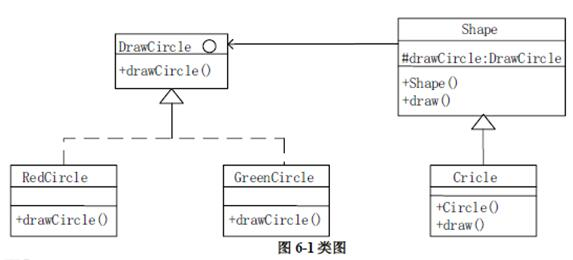有如下程序段: public class Parent { public int addValue (int a,intB){ int s; s=a+b; return 3; } } class Child extends Parent {} 则下列选项中,可以正确加入类Child中且父类的方法不会被覆盖的是( )。A.int addValue (int a,intB){//do something...}B.public void addValue() {//do something...}C.publ
题目
有如下程序段: public class Parent { public int addValue (int a,intB){ int s; s=a+b; return 3; } } class Child extends Parent {} 则下列选项中,可以正确加入类Child中且父类的方法不会被覆盖的是( )。
A.int addValue (int a,intB){//do something...}
B.public void addValue() {//do something...}
C.public int addValue (int a,intB)throws MyException {//do something...}
D.public float addValue (int a,int b,float b=1.0) {//do someting...}
相似考题
更多“有如下程序段:public class Parent {public int addValue (int a,intB){int s;s=ab;return 3;}} ”相关问题
-
第1题:
有如下程序: includeusing namespace std; class PARENT { public: PARENT() { cout 有如下程序:
include <iostream>
using namespace std;
class PARENT
{
public:
PARENT() { cout <<"PARENT"; }
};
class SON : public PARENT
{
public:
SON() {cout << "SON"; }
};
int main()
{
SON son;
PARENT *p;
p = &son;
return 0;
}
执行上面程序的输出是______。
正确答案:PARENTSON
PARENTSON 解析:此题考查的是派生类的构造。主函数开始在定义SON类的对象son时,会先执行PARENT类的构造函数再执行SON类的构造函数,输出 “PAKENTSON”;接下来的语句定义PARENT和让指针p指向son对象,都并未创建任何对象,所以不会调用构造函数。故最终的输出结果是:PARENTSON。 -
第2题:
有以下程序:includevoid fun(int* s,int* * d){* *d=*(s+2);}main(){ inta[]={1,2,3, 有以下程序: #include <stdlib.h> void fun(int * s,int * * d) { * *d=*(s+2); } main() { int a[]={1,2,3,4,5},*b; b=(int *)malloc(sizeof(int)); fun(a,&B) ; printf("%d\n",*b+1); } 程序的输出结果是( )
A.2
B.3
C.4
D.5
正确答案:C
-
第3题:
阅读下列说明和C++代码,填写程序中的空(1)~(6),将解答写入答题纸的对应栏内。
【说明】
以下C++代码实现一个简单绘图工具,绘制不同形状以及不同颜色的图形。部分类及其关系如图6-1所示。

【C++代码】
#include?#include?using?namespace?std;class?DrawCircle?{??????//绘制圆形,抽象类? ? ? public: (1);//定义参数为?int?radius,?int?x,?inty? ?virtual~DrawCircle()?{?}};class?RedCircle:public?DrawCircle?{????//绘制红色圆形? ? ? ? public: void?drawCircle(intradius,?int?x,?int?y)?{cout?<?drawCircle?=?drawCircle;? }? ?virtual~shape()?{?}? public:? ?virtual?void?draw()?=?0;};class?Circle:public?Shape?{????//圆形? ? private:? ? ?int?x,y,radius;? ? public:? Circle(int?x,inty,int?radius,DrawCircle?*drawCircle)? (3)? {? this->x?=?x;? ?this->y?=?y;? ? this->radius?=?radius; }? ? ? public:? void?draw(){? drawCircle?-> (4); }};int?main(){Shape?*redCirclenew?Circle(100,100,10,????(5)????);//绘制红色圆形? Shape?*greenCircle=new?Circle(100,100,10, (6)??);//绘制绿色圆形redCircle >draw();? ?greenCircle?->draw();? ?return?0;}答案:解析:(6)(1)void drawCircle (int radius,int x,int y)
(2)DrawCircle*drawCircle
(3)drawcircle
(4)drawCircle(radius,x,y)
(5)new RedCircle()
(6)new GreenCircle()【解析】
第一空是填接口里面的方法,在接口的实现里面找,可以发现应该填void drawCircle (int radius,int x,int y)。
第二空可以根据后面this drawCircle=drawCircle判断,这里应该有一个drawCircle属性,因此应该填)DrawCircle drawCircle。
第三空这里填drawcircle,用-> drawcircle来引用父类的成员。
第四空调用drawCircle(radius,x,y)方法。
第五、六空分别创建一个红色圆形对象和一个绿色圆形对象作为Circle里面的实参。 -
第4题:
若有如下程序: int s[3] [3]={'a','b','C','d','e','f','g','h','i'},*t; main() {t:(int*)malloc(sizeof(int)); sub(t,s); printf("%c\n",*t); } sub(int*p,int b[][3]) {*p=b[2][1]; } 则程序运行后的输出结果是( )。
A.d
B.e
C.h
D.b
正确答案:C
解析:让指针变量t指向一个整型动态存储空间。函数sub中的语句“*p=b[2][1]”是将数组元素b[2)(1]即h赋给p所指向的存储单元中。 -
第5题:
阅读以下说明和Java程序,填写程序中的空(1)~(6),将解答写入答题纸的对应栏内。
【说明】
以下Java代码实现一个简单绘图工具,绘制不同形状以及不同颜色的图形。部分接口、类及其关系如图5-1所示。


【Java代码】
interface?DrawCircle?{? //绘制圆形 public(1) ;}class?RedCircle?implements?DrawCircle?{? ?//绘制红色圆形???????public?void?drawCircle(int?radius,intx,?int?y)??{????????????System.out.println("Drawing?Circle[red,radius:"?+?radius?+",x:"?+?x?+?",y:"?+y+?"]");???????}}class?GreenCircle?implements?DrawCircle?{????//绘制绿色圆形??????public?void?drawCircle(int?radius,?int?x,int?y)?{???????????System.out.println("Drawing?Circle[green,radius:"?+radius+",x:?"?+x+?",y:?"?+y+?"]");??????}}abstract?class?Shape?{????//形状? protected? ? (2)???;? ? public?Shape(DrawCircle?drawCircle)?{? ?this.drawCircle=?drawCircle;? ? ? public?abstract?void?draw();}class?Circle?extends?Shape?{? //圆形? ?private?int?x,y,radius;? public?Circle(int?x,int?y,intradius,DrawCircle?drawCircle)?{? ?(3)???;? this.x?=?x;? ? ? this.y?=?y;? ?this.radius?=radius;? }? ? ?public?void?draw()?{? ? drawCircle.? ?(4)? ?;? ? ? }}public?class?DrawCircleMain?{? public?static?void?main(String[]?args)?{? Shape?redCircle=new?Circle(?100,100,10,? (5) );//绘制红色圆形? Shape?greenCircle=new?Circle(200,200,10,(6) );//绘制绿色圆形? ?redCircle.draw(); greenCircle.draw();? ?}}答案:解析:(1)void drawCircle (int radius,int x,int y)
(2)DrawCircle drawCircle
(3)super.drawcircle=drawcircle
(4)drawCircle(radius,x,y)
(5)new RedCircle()
(6)new GreenCircle()【解析】
第一空是填接口里面的方法,在接口的实现里面找,可以发现应该填void drawCircle (int radius,int x,int y)。
第二空可以根据后面this drawCircle=drawCircle判断,这里应该有一个drawCircle属性,因此应该填)DrawCircle drawCircle。
第三空这里用super,用super. drawcircle来引用父类的成员。
第四空调用drawCircle(radius,x,y)方法。
第五、六空分别创建一个红色圆形对象和一个绿色圆形对象作为Circle里面的实参。 -
第6题:
对于下面代码,空白处正确的是 class S { public: auto x {3}; auto y {1.1}; auto z { 'a' }; } int main () { S s; ____________________; std::cout << a << "t" << b << "t" << c; return 0; }
A.auto [a, b, c] { s }
B.int a, b, c = s
C.int [ a, b, c ] = {s}
D.auto a {s}, b{s}, c{s}
Score没有带一个参数的构造方法
